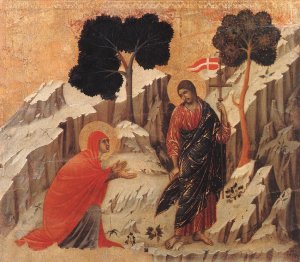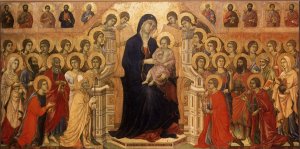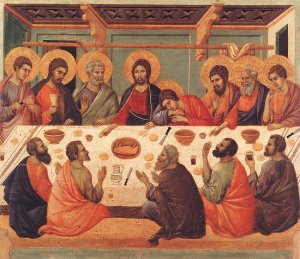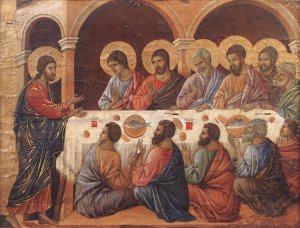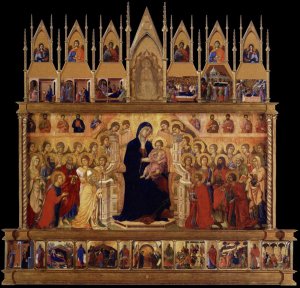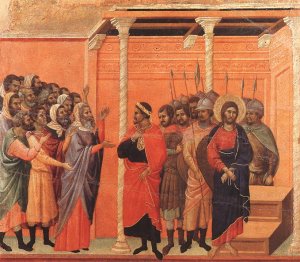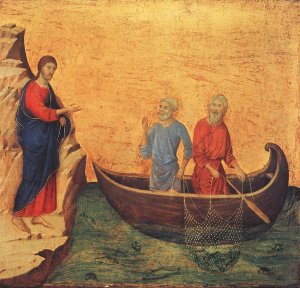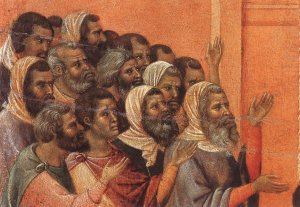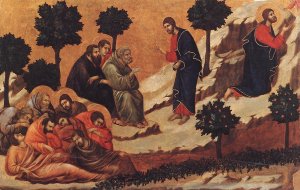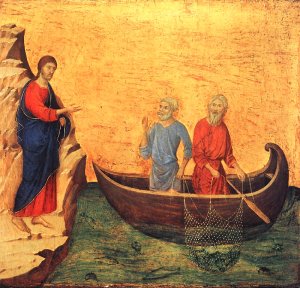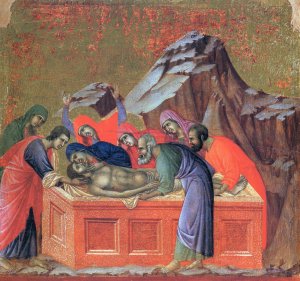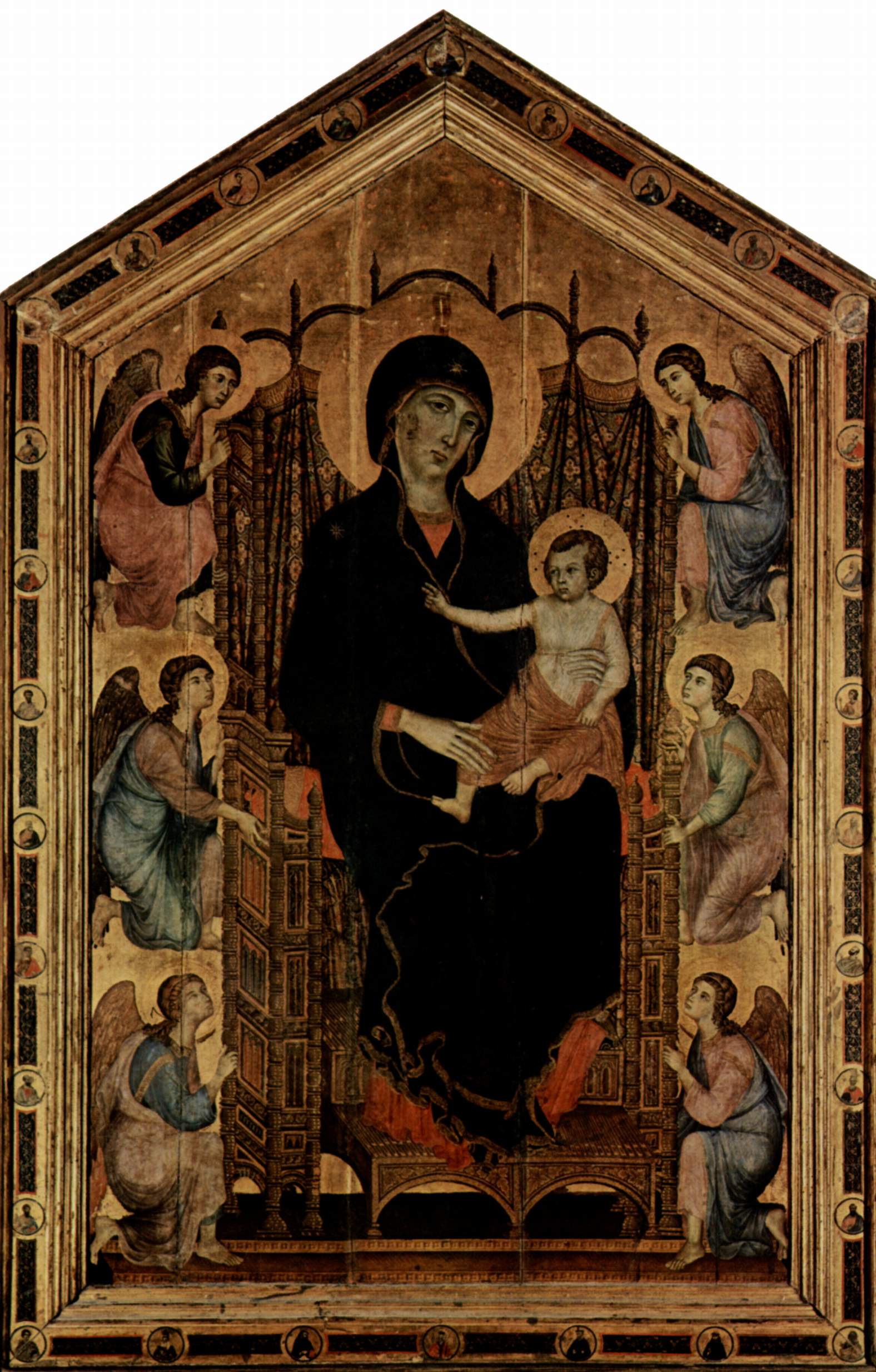
Duccio di Buoninsegna
(c. 1255-1260 - c. 1318-1319)
Duccio di Buoninsegna (c. 1255-1260 - c. 1318-1319) was one of the most influential Italian artists of his time. Born in Siena, Tuscany, he worked mostly with pigment and egg tempera and like most of his contemporaries he painted religious subject matters. He has influenced Simone Martini and the brothers Ambrogio and Pietro Lorenzetti, among others.
His works include the Rucellai Madonna (1285) for Santa Maria Novella (now in the Uffizi) and the fabled Maesta (1308-11), his masterpiece, for Siena's cathedral. The centre of the Maesta depicts the Virgin and Child enthroned and surrounded by angels and saints. He also painted a work known as the Stoclet Madonna, the name stemming from its previous ownership by Stoclet in his collection in Brussels. The Madonna, painted on a wooden panel around the year 1300, was purchased in November 2004 by the Metropolitan Museum of Art in New York City for an estimated sum of 45 million USD, the most expensive purchase ever by the museum. In 2006 James Beck, a scholar at Columbia University, stated that he believes the painting is a nineteenth century forgery; the Metropolitan Museum's curator of European Paintings has disputed Beck's assertion. (From Wikipedia)






